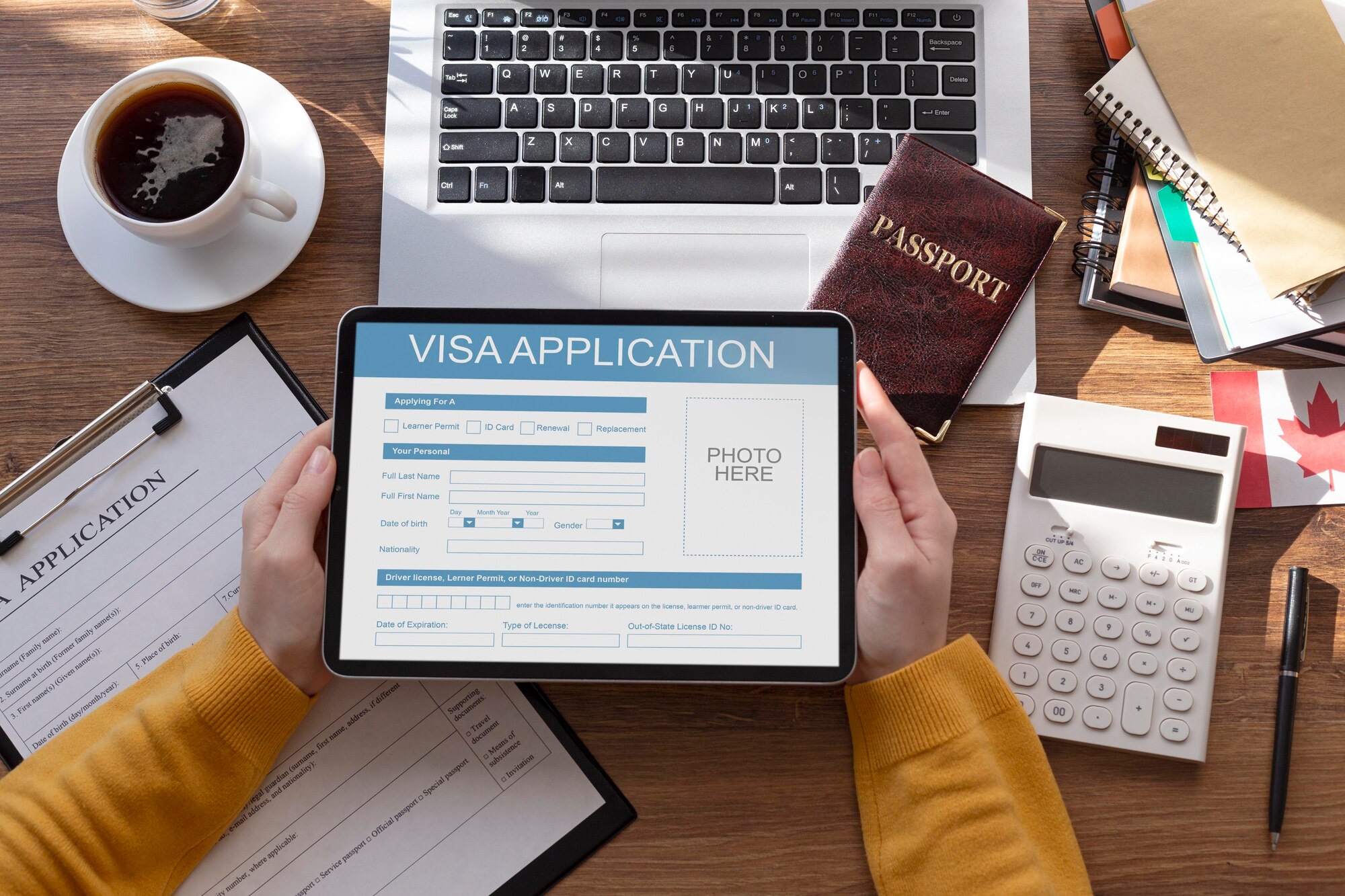
1. Definition
Vietnam 5-year Visa Exemption policy for foreigners allows those of Vietnamese origin, or those who have had Vietnamese nationality or have a family member who is a Vietnamese citizen residing abroad, to enter Vietnam multiple times over a period of 5 years, with each stay valid up to 180 days.
2. Who can apply
According to Decree No. 82/2015/ND-CP, below are subjects who can apply for 5-year Visa Exemption:
3. Requirements
Before you apply for a 5-year visa, it’s important to make sure that you qualify. Here’s the list to check whether you can apply for a Vietnam 5-year visa:
- You are of Vietnamese origin, or once had Vietnamese nationality, or have a father, mother, wife, husband, or child who is a Vietnamese citizen residing abroad; or Agencies, organizations and individuals involved.
- A passport or an international travel document valid for at least 1 year.
- Not fall into the cases subject to suspension from entry and exit stipulated in Article 21 and Article 28 of the Law on Entry, Exit, Transit and Residence of foreigners in Vietnam, for example:
- Prepare other required documents to submit.
It can vary such as Birth Certificate; Certificate of Vietnamese citizenship; Certificate of loss of Vietnamese citizenship; Certificate of Marriage; Certificate of relationship with father, mother, children; etc.
You don’t have to worry about your documents since we would consider the most favorable way for your 5-year Visa Exemption application.
4. How it works
We are a team of experts in Vietnam Visa & Government work with more than 15 years experience & industry knowledge. Understanding the complexity of the Vietnam paperwork process, we aim to become the solution to your Vietnam's legal document requests. We promise to help you secure your 5-year Visa Exemption Certificate fast and easy.
Step 1: Click Apply Now and fill out Service Application Form on our website
Step 2: Confirm all information and make payment via our payment gateways
Step 3: Receive a confirmation email to use the service
Step 4: Send us the necessary documents as requested
Step 5: Send the original documents to the competent authority in Vietnam.
Step 6: Receive the results after the estimated time as agreed.

1. Definition
According to Clause 11, Article 3, Law No. 47/2014/QH13,
| “Visa means a document issued by a competent authority of Vietnam to a foreigner to grant entry into Vietnam.” |
Vietnam visa along with other documents allow foreigners to get through entry/ exit procedures in Vietnam, often single or multiple entries with the validity and duration of stay varying by specific visa types.
Foreigners can be granted a Vietnam visa before arrival to entry ports either through an eVisa or by applying at Vietnam Embassies/Consulates. Alternatively, applicants have the option of obtaining a visa on arrival (VOA) at Vietnam international airports, where their passports are stamped by authorities.
2. Eligibility
Most nationalities can apply for a Vietnam visa, except for exemption cases include:
- Foreigners from countries that Vietnam has signed the bilateral or unilateral visa exemption agreement for their country (See this article)
- Those entering the coastal economic zones decided by the Government if fully satisfy the following conditions:
- Those holding APEC Business Travel Card (ABTC) are exempted from Vietnam visa requirements for a stay of up to 60 days.
Our company has customized the verification tool to check your Vietnam visa eligibility. Please kindly check here with Vietnam-immi.Org.
In case you are still not sure about your eligibility, please do not hesitate to contact us at hotline: +84.357.522.522 for the most detailed advice!
3. General requirements
To apply for a visa and enter Vietnam with ease, you must make sure to possess these basic requirements:
4. How it works
4.1. Apply at the Vietnam Embassy/Consulate
Applicants can get their Vietnam Entry Visa by visiting the nearest Vietnam Embassy/Consulate, with a processing time of 5-7 working days after submission.
4.2. Apply online with Vietnam-immi.Org
We are a team of experts in Vietnam Visa with more than 15 years experience & industry knowledge. Understanding the complexity of the Vietnam paperwork process, we aim to become the solution to your Vietnam visa application. You can choose to apply for eVisa or Visa On Arrival with us!
Our below working process is simple and effective, you don’t have to submit and keep track of applications by yourself. Just follow our guide and enjoy your trip to Vietnam without hassle.
EVISA
|
Step 1: Click Apply Now and fill out Service Application Form on our website Step 2: Upload your passport photo and portrait photo Step 3: Confirm all information and make payment via our payment gateways Step 4: Receive the E-Visa via email and travel to Vietnam |
VISA ON ARRIVAL
|
Step 1: Click Apply Now and fill out Service Application Form on our website Step 2: Confirm all information and make payment via our payment gateways Step 3: Receive Visa Approval Letter via email; you must print and present it along with other required documents at your entry port to get your passport stamped. |

1. Overview
Criminal Records, also known as Police Check, or Police Clearance Certificate is an official document issued by Vietnam Justice Departments at the provincial level or the National Center for Judicial Records, with the purposes of:
There are two types of Criminal Record Certificate:
- Criminal Record Certificate No.1 is granted to individuals, agencies, and organizations:
- Criminal Record Certificate No.2 is granted to:
Criminal Record Certificate No.2 is mostly requested at court proceedings, whereas Criminal Record Certificate No.1 is more common when applicable for various purposes, including work permit applications for foreign workers, supplementary documentation for company job applications, as well as consular requests or visa applications within Vietnam.
2. Eligibility
According to Law No. 28/2009/QH12 on Judicial Records, below are subjects who can be granted Criminal Record Certificate,
3. Required documents
Vietnamese or foreign individuals or agencies or organizations must prepare the basic documents:
4. How it works
Up to now, Vietnamese citizens and foreigners can register to get a Criminal Record Certificate via the Online Judicial Certification of the Vietnam Ministry of Justice.
The detailed guide is below:
Step 1: Enroll for the issuance of an online criminal record certificate here
Select your case and the permanent/temporary residence; click “GET STARTED” to proceed with the service. The platform will guide you step by step or you can download guidelines on the main screen.
You must save your online code which is displayed on the screen before clicking the “FINISH” button.
Step 2: Bring your profile and the online code to agencies managing judicial record databases in person or by postal service.
Depending on the place of residence, Vietnamese citizens and foreigners can go to the respective authority to submit their documents.
Step 3: Pay the fee and get an appointment document to get the result.
Upon completion of all steps, you will receive an appointment document. In the case of a mailed submission, the appointment paper will be dispatched to the applicant's email.
Step 4: Receive your result
The applicant is required to visit the submission location to obtain the results. Additionally, if applications are submitted by mail, the result will be dispatched to the address provided in the registration form.
5. Processing time & Fees
Normally, the processing time for Criminal Record Certificate issuance would be 10 working days after receipt of complete documents and fees.
Fees are regulated clearly in Circular No. 244/2016/TT-BTC,
|